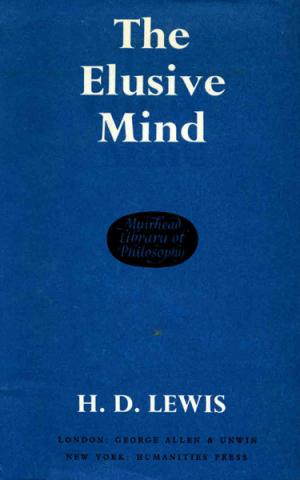Professor Lewis’s book is a methodical defence of a traditional dualism against its contemporary opponents. He is thoroughly out of sympathy with many of the writers he examines – their arguments are ‘desperate, tortuous and unconvincing’ – and the general intimidating tone becomes somewhat wearisome after a while, even to one sympathetic to the position he defends. The self that emerges from Lewis’s examination of the topic is elusive in the sense that no objective account can be given of the nature of its identity, nor of the manner in which experiences belong to it. The denial of the possibility of a criterion of personal identity also seems to render the self essentially characterless, for there can be no more than a contingent connection between it and any particular body, having the history that it has.
The Elusive Mind
1966 to 1968
University of Edinburgh
Books
The Elusive Mind

George Allen & Unwin
1969
H. D. Lewis does not attempt an exhaustive survey of recent controversies about the mind-body problem. His plan is to select some typical and influential discussions of the question and subject those to fairly detailed examination. The first position on which he comments, in chapter 1, is that of Professor Gilbert Ryle in his The Concept of Mind as well as the philosophy of Descartes.
Contributor(s)
- J. Douglas Mastin


